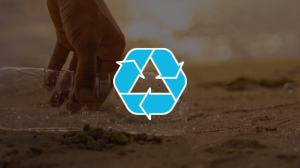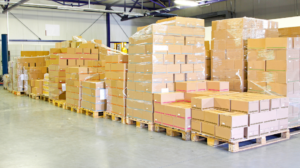‘Biodegradable’ plastic will soon be banned in Australia. That’s a big win for the environment
To start dealing with Australia’s mounting plastic crisis, the federal government last week launched its first National Plastics Plan.
The plan will fight plastic on various fronts, such as banning plastic on beaches, ending polystyrene packaging for takeaway containers, and phasing in microplastic filters in washing machines. But we’re particularly pleased to see a main form of biodegradable plastic will also be phased out.
Biodegradable plastic promises a plastic that breaks down into natural components when it’s no longer wanted for its original purpose. The idea of a plastic that literally disappears once in the ocean, littered on land or in landfill is tantalising — but also (at this stage) a pipe dream.
Why ‘biodegradable’ ain’t that great
“Biodegradable” suggests an item is made from plant-based materials. But this isn’t always the case.
A major problem with “biodegradable” plastic is the lack of regulations or standards around how the term should be used. This means it could, and is, being used to refer to all manner of things, many of which aren’t great for the environment.
Many plastics labelled biodegradable are actually traditional fossil-fuel plastics that are simply degradable (as all plastic is) or even “oxo-degradable” — where chemical additives make the fossil-fuel plastic fragment into microplastics. The fragments are usually so small they’re invisible to the naked eye, but still exist in our landfills, water ways and soils.
The National Plastics Plan aims to work with industry to phase out this problematic “fragmentable” plastic by July, 2022.
Some biodegradable plastics are made from plant-based materials. But it’s often unknown what type of environment they’ll break down in and how long that would take.
Those items may end up existing for decades, if not centuries, in landfill, litter or ocean as many plant-based plastics actually don’t break down any quicker than traditional plastics. This is because not all plant-based plastics are necessarily compostable, as the way some plant-based polymers form can make them incredibly durable.
So it’s best to avoid all plastic labelled as biodegradable. Even after the ban eliminates fragmentation — the worst of these — there’s still no evidence remaining types of biodegradable plastics are better for the environment.
Compostable plastics aren’t much better
Compostable plastic is another label you may have come across that’s meant to be better for the environment. It’s specifically designed to break down into natural, non-toxic components in certain conditions.
Unlike biodegradable plastics, there are certification standards for compostable plastics, so it’s important to check for one the below labels. If an item doesn’t have a certification label, there’s nothing to say it isn’t some form of mislabelled “biodegradable” plastic.



